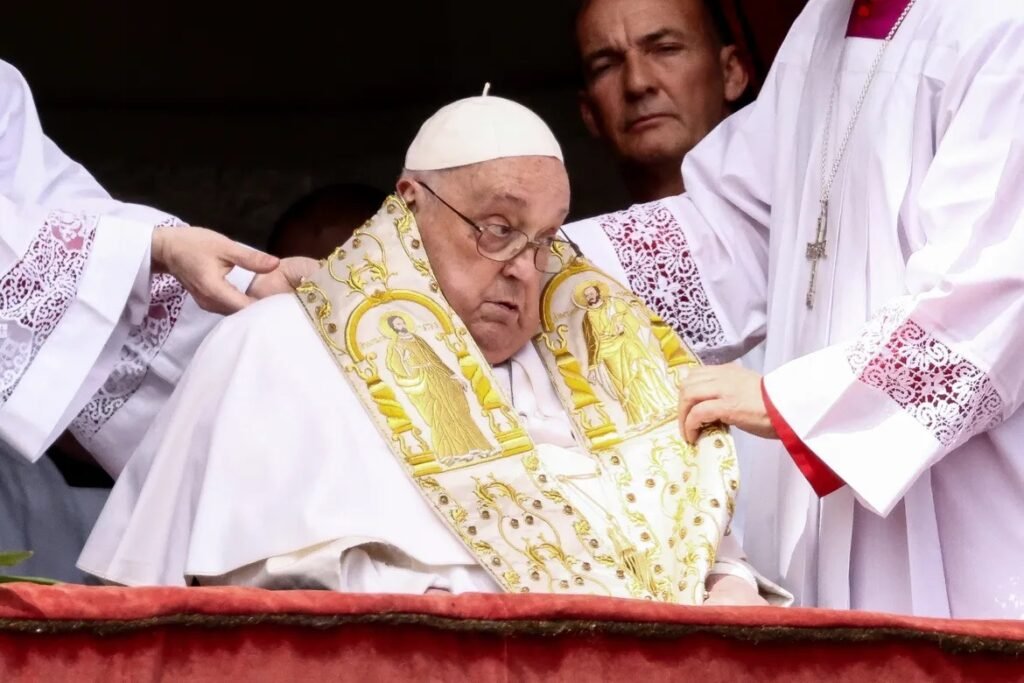FOR 750 YEARS, the College of Cardinals choses popes at closed conclaves with participants locked in and completely isolated from the outside world.
A small number support staff —cooks, medical staff and clerks —are locked in with the electors. They, too, are bound by a vow to secrecy.
The penalty for violating the vow (even by the electors) is permanent removal or excommunication from the life of the church, wrote History Prof. Christopher M. Bellitto of Kean University in Union N.J. in Time magazine.
EXPECT THE UNEXPECTED
Following such tedious procedures, all the names being floated around and touted as papabili (literally, “pope-able”) are mere speculations and conjectures as the unexpected (a name that has never been listed as “papabile”) might just be the one voted upon.

The only indication that a pope has been elected is through a white smoke billowing from the chimney of the Vatican, but a black smoke indicates none had been chosen yet.
Even after a pope is chosen in the very rare conclave —imagine only 16 papal conclaves since 1788 versus 60 US presidential elections, the only lesson from these conclaves is “to expect the unexpected,” Bellitto said.
At the beginning of Christianity, a pope was either chosen by a cheering Roman crowd as the next spiritual leader, or a group of local clergy and powerful families got together and made a choice. It was not until the 13th century that the process changed because the cardinals infuriated the people of Viterbo, Italy by nearly nearly three years to choose a successor to Pope Clement IV who had died in their town.
Back then there were few cardinals who tended to travel with the pope and elected a successor only when the pope died. The irked lay people locked up the cardinals to hasten the selection process and this tactic worked as they made the selection while behind lock and key. All notes from the conclave are burned.
Over time, this practice led to a new tradition: the cardinals would burn the ballots with substances to make the smoke black to indicate no pope was elected and white to indicate success.
In the 16 more secretive conclaves since 1800, one pattern has emerged: rarely would the choices typically come from names bandied-about as papabili.
YEAR OF THREE POPES
But 1963 was an exception. That became clear when Paul VI died in 1978— the year of three popes. The conclave to replace him chose Cardinal Albino Luciani, who took the hybrid name John Paul I who died a month later of heart attack; the second conclave, with Krakow’s Cardinal Karol Wojtyla, or the now St. John Paul II.
At least in this case, one cardinal kept his vow of silence about how that came about. The second 1978 conclave proved to be the last for the 20th century since John Paul II remained pope until his death in 2005.
After his 27-year tenure, observers expected the cardinals to replace John Paul II with an older successor. The curia—the Vatican’s bureaucracy— was in terrible shape and it would take someone who knew how things worked to fix it. This was German Cardinal Joseph Ratzinger. His name appeared on very few papabili lists and when it did, it was quite low, as he was considered a bit too old at 78.
It was said that Ratzinger almost tied with Cardinal Jorge Bergoglio of Buenos Aires.
When Benedict XVI unexpectedly resigned in 2013, the second 1978 followed, which produced a choice on almost no one’s list. But the 2013 conclave returned to Bergoglio, who became Pope Francis, first Jesuit pope from Latin America and the first non-European Pope in over 1,200 years.
This matters a lot in terms of the theology of the election: the idea is that God, through the Holy Spirit, comes down on the cardinals and inspires them and their choice.
THEIR OWN MEN
With his death on Easter Monday at age 88, 135 eligible cardinals will vote for Francis’ successor. Of this, 108 —or 80 percent— were his appointees.
Cardinals are “their own men,” and even those picked by Francis may have their own opinions.
Miles Pattenden, a historian of the Catholic Church at Oxford University in a TIME Magazine interview, cited an Italian proverb: “After a fat Pope comes a thin one,” indicating that cardinals very often focus on what they didn’t like about the previous Pope …”
The first question on cardinals’ minds will be whether they want change or continuity. This present conclave has the largest number of eligible cardinal-electors.
In 2013, he said, 51 percent of cardinal-electors were European. Now, 39 percent are and 18 percent come from Asia Pacific, 18 percent from Latin America and the Caribbean, 12 percent come from Sub-Saharan Africa, 10 percent from North America, and 3 percent come from the Middle East and North Africa.
Francis played a big role in that shift: Of the 108 he appointed, 38 percent came from Europe, 19 percent from Latin America and the Caribbean, 19 percent from the Asia-Pacific, 12 percent from sub-Saharan Africa, 7 percent from North America, and 4 percent from the Middle East and North Africa.
While geographic diversity was a priority, theological diversity was not. The cardinal-electors have their preferences.
“This matters a lot in terms of the theology of the election: the idea is that God, through the Holy Spirit, comes down on the cardinals and inspires them and their choice.”
